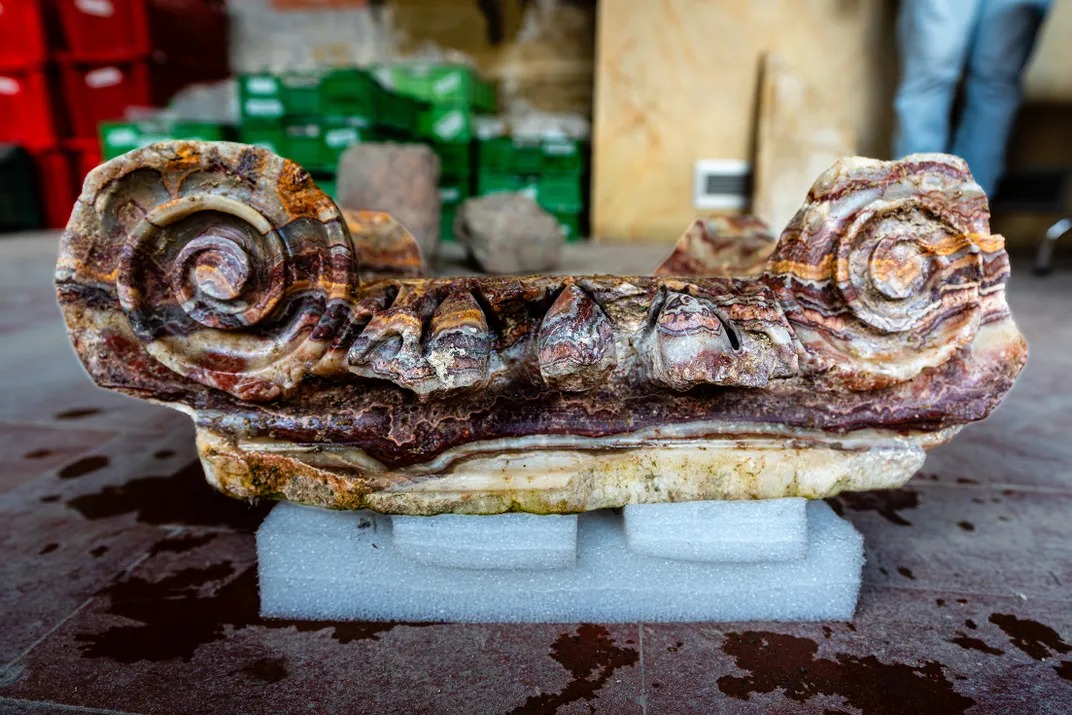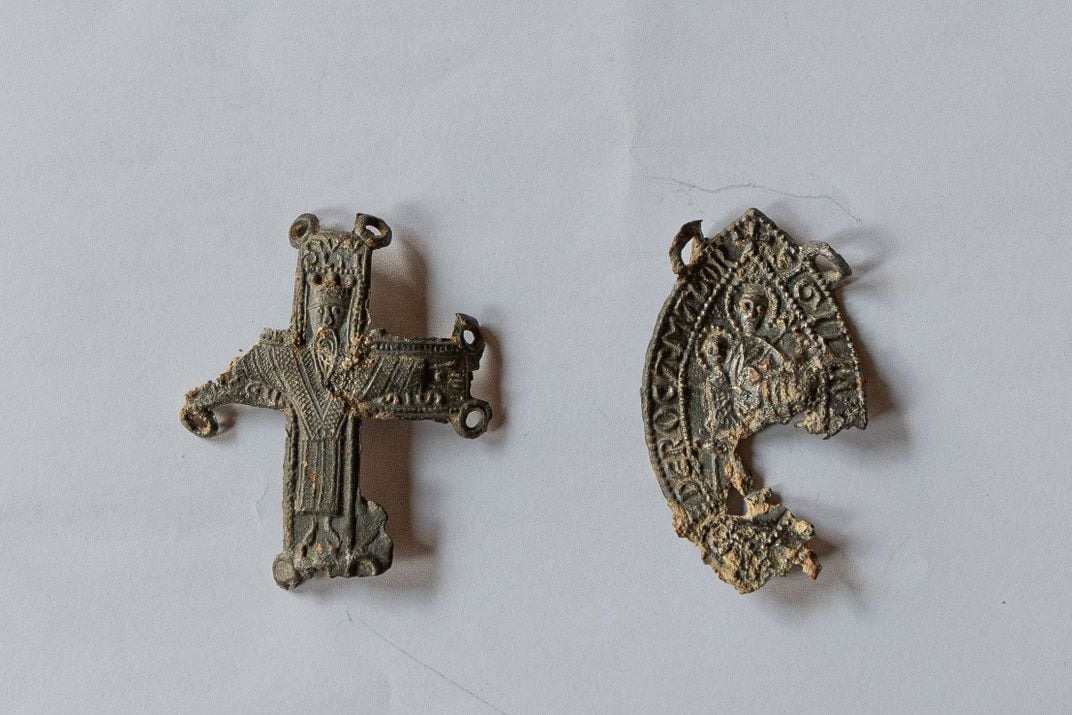
Nero, who ruled over the Roman Empire from 54 AD to 68 AD, was known for his love of the arts. The emperor had even purportedly built a private theater to rehearse his poetry and music. While its existence had been documented by many Roman historians, finding the structure had proved elusive. On July 23, 2023, a team of Italian archeologists revealed that they may have finally unearthed the "lost" theater.
"This is an exceptionally important discovery which reveals an extraordinary building from the Julio-Claudian era, the theatre where Nero practiced his poetic recitations and songs, which was known from ancient sources but had never been found," Daniela Porro, Rome's chief archaeologist, said.

The team, led by Marzi Di Mento, stumbled upon the remains of the brick and marble structure while clearing a piece of land in a garden next to the Vatican in Rome. The archeologists unearthed parts of a horseshoe-shaped seating section complete with marble columns. They also found a portion of the stage and storage rooms with costume remnants and backdrops used during performances. The theater's luxurious design is similar to that of Nero's Palace. Date stamps on the bricks confirmed that the theater was built in the first century.
"It had a significant capacity, probably for an audience of several thousand," said archeologist Alessio De Cristofaro. "There were fluted columns in African marble, alabaster columns, and stucco ornamentation decorated with gold leaf."

While the ruins of the theater were found recently, the site excavation has been going on since 2020. It has revealed numerous treasures from the 15th century. They include glass goblets, cooking pots, coins, and parts of musical instruments. Combs made from bones and remains of tools used to make prayer beads were also found.
The smaller artifacts will be sent to Roman museums for display. Once Nero's theater has been properly documented, it will be reburied and preserved for future researchers to discover.

Nero, who came to power at age 16 or 17, was one of Rome's most infamous rulers. He is often described as a tyrant who killed his mother, step-brother, and wife. The emperor is also accused of starting the Great Fire of Rome in 64 AD to make room for a lavish castle. However, there is no evidence that he either started the fire or played the fiddle while the city burned. In fact, some historians maintain that Nero sheltered people during the fire.
Resources: CNN.com, Smithsonianmag.com, thepost.co.nz, pbs.org
